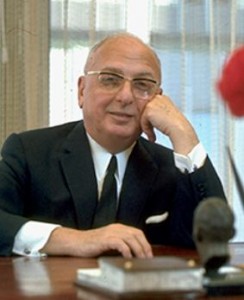Baseball Player, Lawyer… and Secret Agent
Morris Berg (1902-1972) was born in New York to Russian-Jewish immigrants. He began playing baseball at age 7, and by 16 was on Newark’s baseball “dream team”. He studied first at New York University, then Princeton, and graduated with a degree in languages, learning to speak seven of them. By his senior year, he was captain of Princeton’s baseball team. A day after his last game with Princeton, Berg signed a contract with the Brooklyn Robins. In the off-season, he headed to Paris and continued his studies at the world-famous Sorbonne (University of Paris). There, he began a personal routine of reading as many as 10 newspapers every single day. Berg was never very good at baseball, and was often traded and loaned between many different teams. Always a scholar first, in 1926 he told the Chicago White Sox that he is skipping spring training because he was enrolled in law school at Columbia University. He earned his law degree in 1930, and then split his time between baseball in the summer and working at a prestigious Wall Street law firm in the winter.
In 1932, Berg toured Asia, visiting Japan, China, Siam, India, and Egypt. A couple of years later, he returned to Japan with a video camera, later traveling to the Philippines, Korea, and Russia, before returning to play with the Red Sox for 5 seasons, then coaching the team for 2 more. After the attack on Pearl Harbor, Berg joined the war effort and eventually became a spy. He shared his video footage of Japan, which was instrumental in planning American raids during the war. After serving in South America and the Caribbean, Berg was parachuted into Yugoslavia to assist resistance groups fighting the Nazis. His next mission was to travel across Europe and convince scientists working for the Nazis (particularly on their nuclear bomb project), to come work for the U.S. instead. In 1951, he requested that the CIA station him in Israel. Instead, they sent him to Europe to spy on Soviet nuclear work. In 1954, the CIA let him go and for the rest of his life Berg lived with his siblings, having never married. His wishes were to be cremated, and his ashes were scattered in Jerusalem. Berg was inducted into the Jewish Sports Hall of Fame, and Baseball’s Shrine of the Eternals. He was awarded the Medal of Freedom, and his baseball card is on display at CIA headquarters. Berg was described as “the most scholarly professional athlete”, and the “strangest man ever to play baseball.”
Words of the Week
If you begin a good deed, finish it, for a mitzvah is credited to the one who concludes the task.
– Talmud, Sotah 13b




